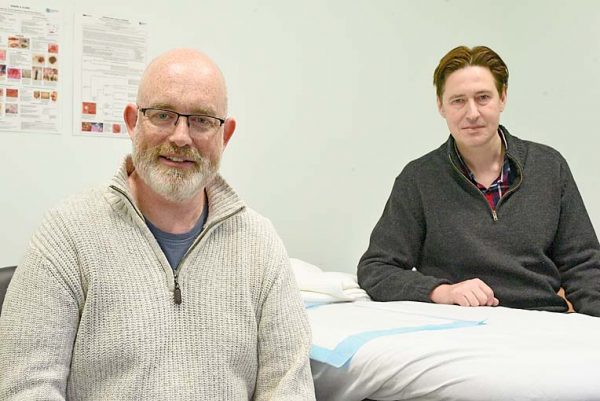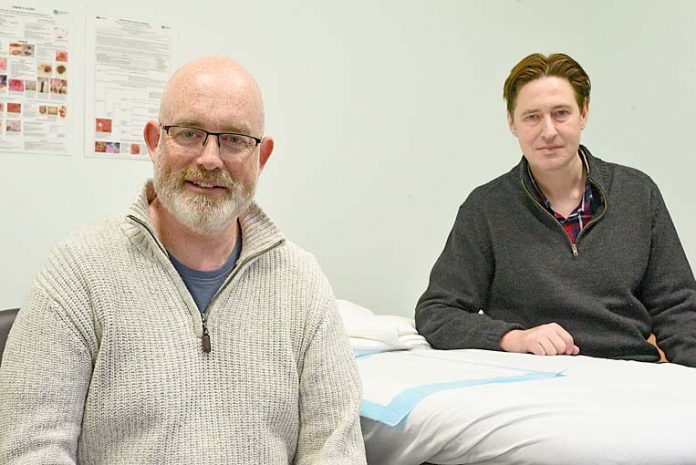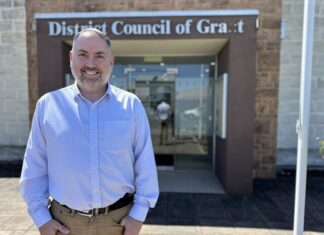
A NEW specialist skin cancer clinic will provide a streamlined service to detect melanomas and other skin cancers among the Limestone Coast community.
With one in three Australians developing a skin cancer at some point during their life, the formation of the Mount Gambier Skin Cancer Clinic was a no-brainer for partners Dr Richard Try and Dr Jason Johnson.
The collaboration brings together the two community-minded individuals, each with over a decade of experience in the medical field.
“We have both been doing skin cancer for quite some years and both of us have seen an increase in what we are seeing,” Dr Try said.
“I’m diagnosing around one melanoma a month and one in three Australians will have skin cancer at some point in their life, so it’s an incredibly common sort of cancer.”
Highlighting the higher level of sun exposure among certain work forces in the region, Dr Try said anyone with a lump or a spot should have a skin check.
“Although work safe practices are increasing, there’s still that history of sun exposure that’s occurred over the course of people’s lives,” he said.
“It’s better to check that you are okay, than not check and then end up with a bigger problem.
“The earlier we treat melanomas, the better the outcome and the easier it is to treat.”
Despite the ongoing occurrence of skin cancer among patients, he said people’s awareness around skin care had come a long way in recent years.
“I think generally people are more aware of looking after their skin these days and people are coming forward a lot more than they used to,” Dr Try said.
“I think it will probably take another generation before we start to see less skin cancer because it is sun exposure over a lifetime, not in the last week.”
Dr Johnson said patients with a history of melanomas should also spread the word to family members in case it is linked to family history.
“It’s really important that people know they should be getting their skin checked and they know they have somewhere to go when they have a concern about a lump,” Dr Johnson said.
“I often see people come in and they are having a check, but they might not have suggested it to their brother, sister or children.”
Still in the midst of the COVID19 pandemic, Dr Johnson revealed the number of patients they had seen in recent months had reduced.
“We are still in the early days and it’s hard with COVID-19 looming around to encourage people to come into the clinic,” he said.
“Once people are more comfortable about coming in, I think this service will be a great thing for the town.”








